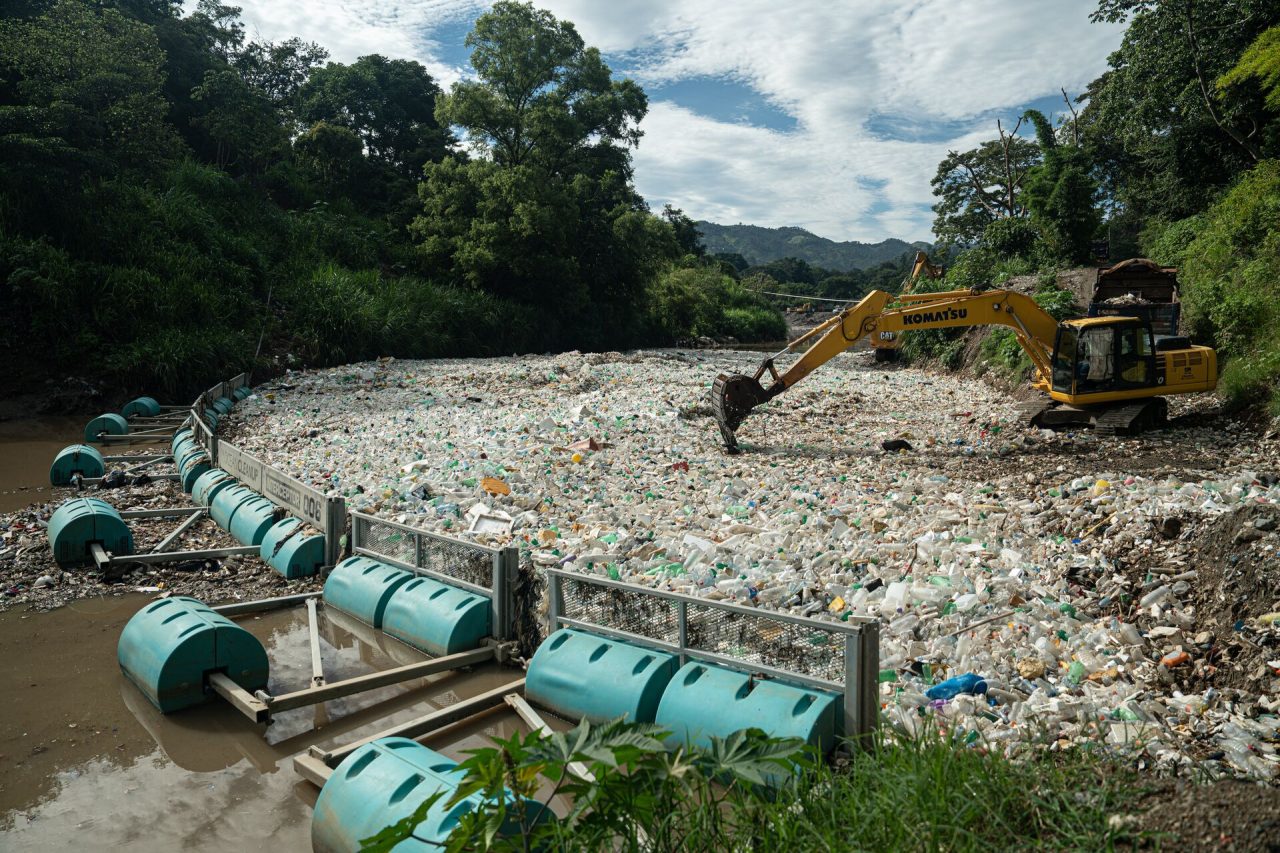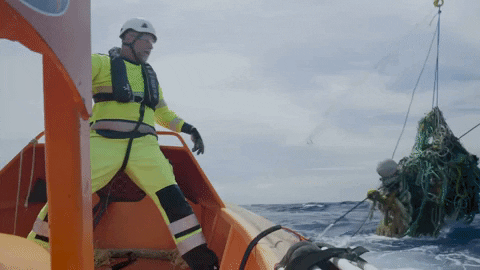Live Streams
This page is an archive of The Ocean Cleanup’s past live stream recordings; highlighting many of our milestones over the years, dating back to the release of the Feasibility Study in June 2014.
Live streams from 2022
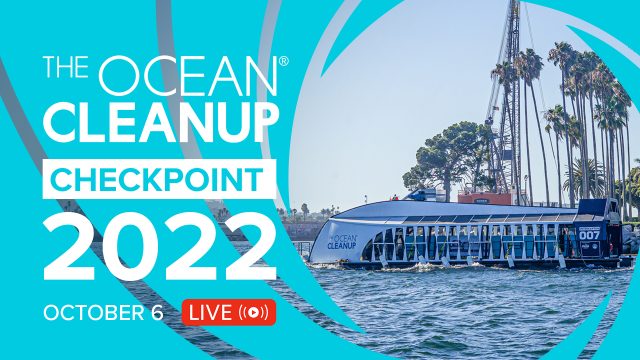
Checkpoint 2022
On Thursday October 6, 2022, The Ocean Cleanup towed Interceptor 007 to its deployment location in Ballona Creek, Los Angeles County – USA.
To mark this checkpoint in our journey, The Ocean Cleanup broadcasted the entire towing operation live, simultaneously from on board Interceptor 007 in the Pacific Ocean and from The Ocean Cleanup HQ in Rotterdam where crew members (and special guests) monitored the operation, shared stories and discussed where we are and where we’re going with our mission.
Live streams from 2021
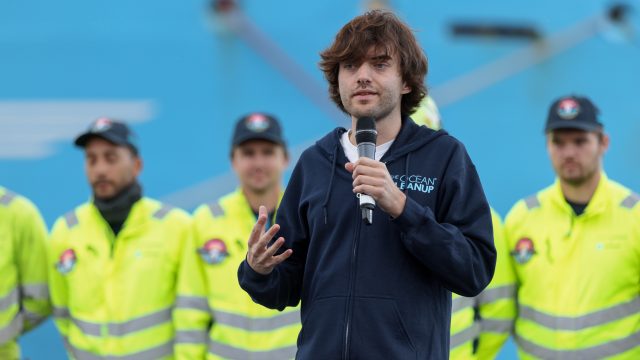
System 002 – Proof of Technology
On October 20, 2021, we officially announced that after the successful completion of System 002 test campaign, we have achieved proof of technology and are ready to return to the Great Pacific Garbage Patch and start the cleanup.
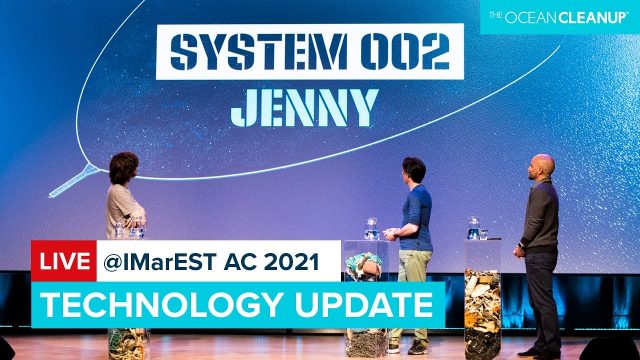
System 002 – Technology Update
On July 5th, 2021 we gave a detailed update on the design of our next ocean cleanup system, System 002 at the annual IMarEST (Institute of Marine Engineering, Science & Technology) conference.
Live streams from 2020
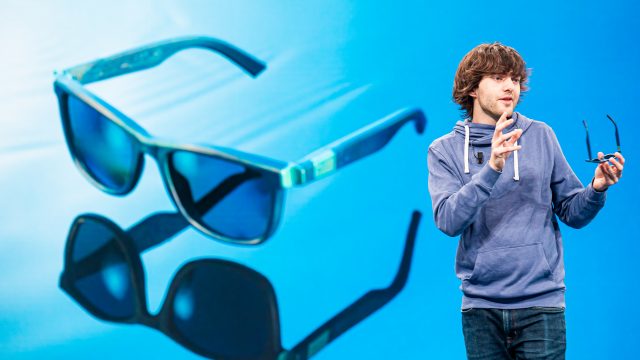
First Ocean Plastic Product
Boyan Slat presented our first product, sunglasses, made with ocean plastic certified from the Great Pacific Garbage Patch, with 100% of the proceeds going directly to the next cleanup operations. Each pair of sunglasses is estimated to enable cleaning an equivalent of 24 football fields worth of the Great Pacific Garbage Patch.
Live streams from 2019
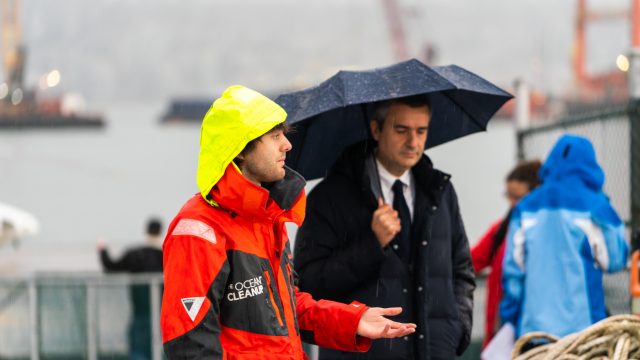
Mission One Complete: Plastic on Shore
On December 12, 2019, we announced that our first plastic catch is onshore and we shared our plans for this ocean plastic. We also took a moment to look back on Mission One and look forward to 2020.
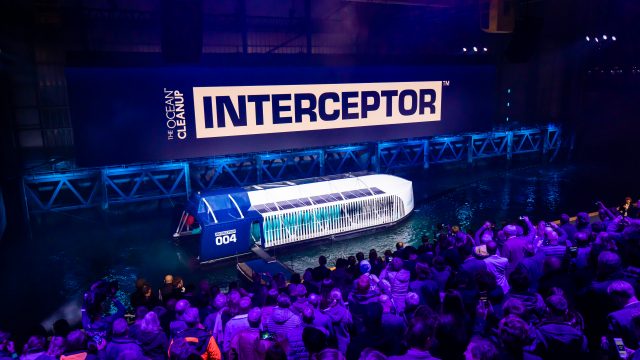
Unveiling the Interceptor™
On October 26, 2019, Boyan Slat presented the plan to address the main source of ocean plastic: rivers. The Interceptor is the first scalable solution to intercept river plastic pollution and can be deployed in the most polluting rivers around the world.
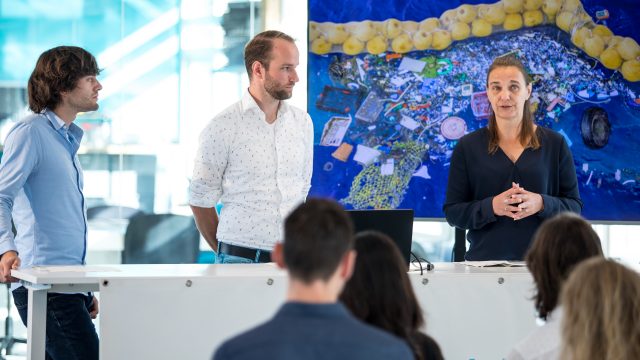
Plastic Successfully Caught in the Great Pacific Garbage Patch
On October 2, 2019, we announced that System 001/B was effectively capturing and collecting plastic debris. After one year of testing in the North Pacific, we succeeded in developing a self-contained system in the Great Pacific Garbage Patch that uses the natural forces of the ocean to passively catch and concentrate plastic.
Live streams from 2018
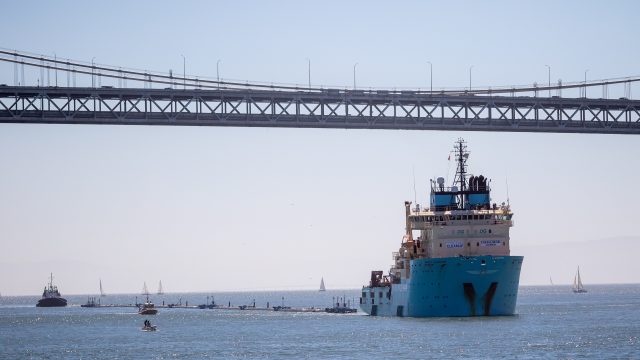
The Launch of System 001
After five years of research, engineering, and testing, on September 8, 2018, the world’s first ocean cleanup system was launched from our assembly yard in Alameda, California, toward the infamous Great Pacific Garbage Patch.
Live streams from 2017

The Next Phase of The Ocean Cleanup Design
Following a design breakthrough, Boyan Slat announced on May 11, 2017, that we would be moving from one moored system design to a fleet of free-floating systems. This new design would make the cleanup operation more efficient and scalable.
Live streams from 2016
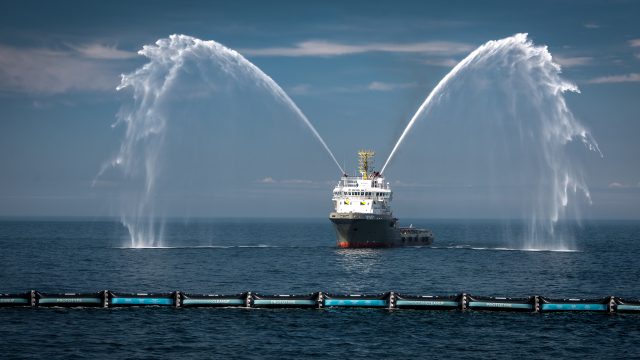
Introducing the First North Sea Prototype
The first prototype of the ocean cleanup system was unveiled on June 22, 2016 in Scheveningen Harbor, the Netherlands; called the North Sea Prototype 1, the purpose of this system was to test the survivability of the passive cleanup system design.
Live streams from 2014
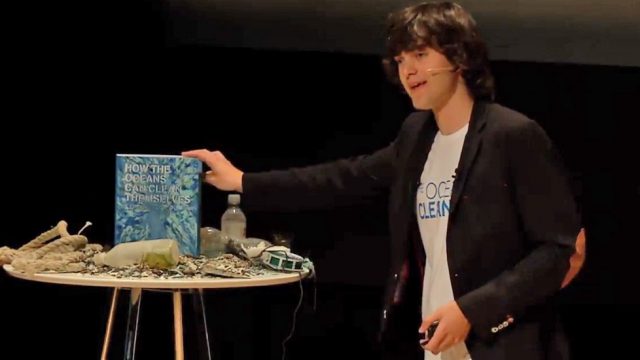
How the Oceans Can Clean Themselves: The Feasibility Study
From a stage in New York City, on June 3, 2014, Boyan Slat delivered the long-awaited sequel to his famous 2012 TEDx Talk. The Feasibility Study was the outcome of a community working together to prove the feasibility of a passive ocean cleanup concept.
